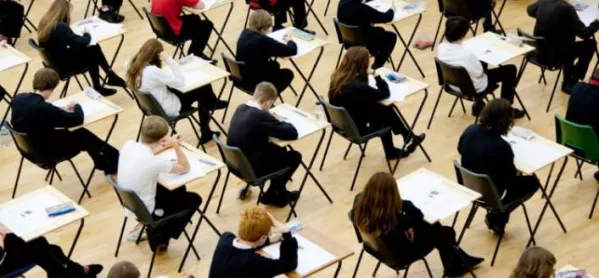More children are experiencing “severe exam anxiety”, which in some cases is spilling over into “dark thoughts” about self-harm and suicidal thinking, Tes has been told.
One head said the number of students experiencing acute anxiety at her school had increased tenfold in recent years, while another teacher spoke about pupils “crying in class” and feeling “overwhelmed” by revision.
Many teachers have said that the government’s changes to GCSEs and A levels - such as scrapping modules and the majority of coursework - has made them more stressful.
Read: Most girls say exams are top cause of stress
Advice: Six ways to reduce exam stress for GCSE students
Comment: ‘Parents feel exam stress, too’
Sarah Bone, headteacher of Headlands School in Bridlington, told Tes: “Three years ago I might have had one child who was suffering with severe exam anxiety, where they’re losing sleep, they’re considering dark thoughts.
“I can honestly tell you now that there are probably between 10 and 15 of my children in Year 11 who are having serious, significant dark thoughts around this summer’s examinations.”
Asked how this anxiety manifests itself, she said: “Increasing amounts of self-harm. That’s not necessarily just through physical cutting - that could be through eating and not eating.
“Anxiety - we’ve had an increased number of panic attacks in the last three years among young people, getting incredibly anxious and feeling very overwhelmed… Suicidal thoughts [are] becoming more prevalent.”
Another teacher, who teaches history at a comprehensive in the South West but who preferred not to be named, painted a similarly concerning picture.
“I’ve had kids crying in class and unable to cope with their workload,” she said. “They do extra work and request extra revision sessions even though they’re already doing more than they need to. Even key stage 3 students are focused on grades over progress or learning experience.
“Feedback from kids on their wellbeing is frightening. Many feel overwhelmed and mental health difficulties are an increasing problem.”
While some people have linked exam reforms to increasing anxiety, Ofqual has said the research evidence does not exist to substantiate this.
At the Commons Education Select Committee last month, Ofqual chair Roger Taylor said: “Any organisation that is involved in education or young people has got to take extremely seriously the evidence of growing levels of anxiety.”
He went on: “We are taking very seriously the suggestion that the structure of exams themselves are contributing to that. However, the evidence does not support the view that it is the way that exams are designed which is the issue.”
A Department for Education spokesperson said: “We know that good mental health is imperative for young people to enjoy and be successful in school.
“That is why, via our new compulsory health education, all children will be taught how to look after their mental wellbeing and recognise when classmates are struggling.
“In addition, our £300 million mental health Green Paper proposals include a new workforce for schools and colleges to provide support for children.
“We know exam season can be a time of heightened emotions for pupils who want to do their best. While testing has always been an important part of education, it should never be at the expense of a young person’s wellbeing.
“We trust schools to provide appropriate support as part of their whole school approach to supporting the wellbeing and resilience of pupils.”
This is an edited article from the 19 April edition of Tes. Subscribers can read the full article here.




